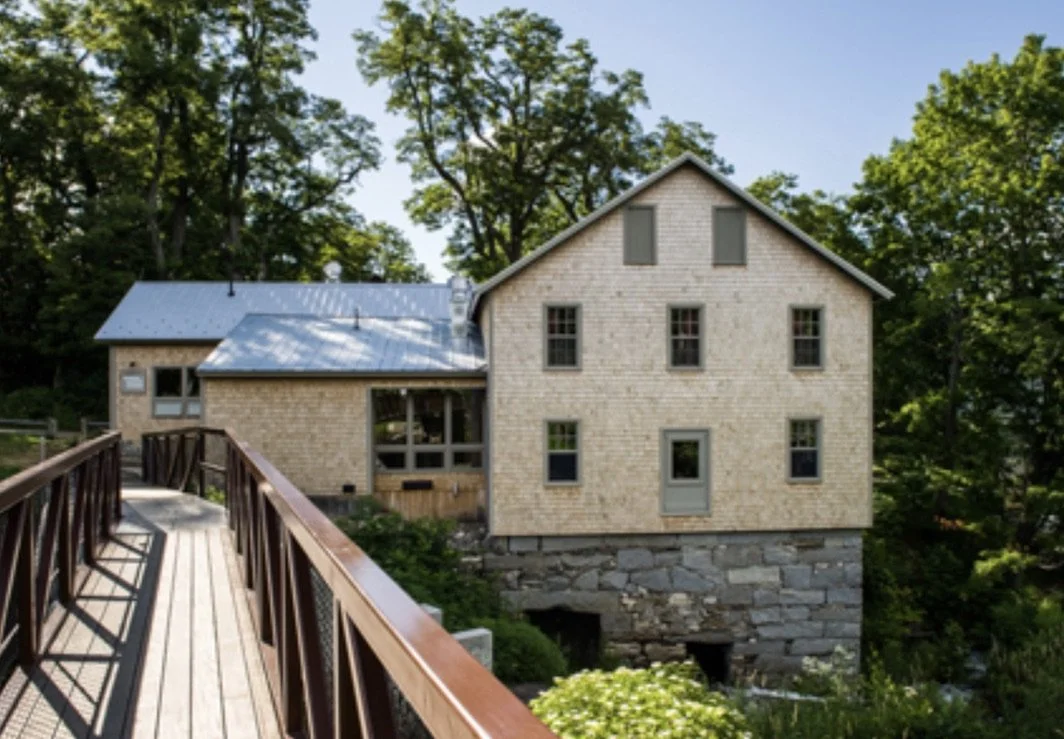Experiential Hospitality at Its Finest: The Lost Kitchen
I call this newsletter "Experiential Hospitality," but have written almost exclusively about accommodations specifically.
Today, I give you maybe my all-time favorite experiential hospitality story—and it's about a restaurant (if you can call it that).
See, Erin French didn’t just build a restaurant. She turned a tiny, forgotten town into a global culinary destination. From rock bottom to one of America’s most celebrated restaurateurs—her story is as unlikely as it is unforgettable.
I present to you: The Lost Kitchen
The Lost Kitchen housed in the old gristmill of Freedom, ME
Born and raised in Freedom, Maine (population <800), Erin was no stranger to kitchens. She grew up flipping pancakes at her dad’s diner, igniting a passion for food.
But her future, like the town, seemed destined to fade.
She dropped out of college, became a single mom at 21 and went through a rocky marriage that ended in divorce. At rock bottom, she lost her business, custody of her son, and battled addiction.
After rehab, Erin borrowed $5,000 to buy a 1965 Airstream and began hosting pop-up dinners in orchards and fields around mid-coast Maine.
Rebuilding from rock bottom...
These grassroots meals sparked a loyal following, and by 2014, she had just enough to lease an old grist mill in her tiny hometown of Freedom.
The mill was built in 1834 but had been abandoned and fallen into disrepair.
With the help of a dedicated preservationist couple Tony & Sally Grassi, the mill was saved from the brink of collapse. Along with friends and family, she dump in everything she had. The stage was finally set…
And The Lost Kitchen was born.
From the start, this was unlike any other restaurant.
Guests don’t choose from a menu—they enjoy an 8-to-10-course feast crafted from the freshest local ingredients, each sourced from nearby farmers Erin knows by name.
Making dinner with hyper-local and season ingredients
The intimate, 40-seat, candle-lit dining room feels more like a family gathering than fine dining.
Word spread fast, and Erin was soon utterly overloaded with reservation requests. So she did something radical: guests would now have to mail in a handwritten postcard for a chance at the table.
Absolutely brilliant!! (how many other hospitality businesses could do some version of this?!)
This simple, old-fashioned system did more than solve logistics—it became part of the experience, adding a layer of charm and exclusivity that captivated people worldwide.
And, best of all, it single-handedly saved the town’s tiny post office from closure (when I read about this, I could hardly believe it... what a story!).
In just a few years, The Lost Kitchen became a global destination, receiving over 60,000 postcards each season for only 1,500 seats.
But Erin’s vision didn’t end with dinner. She and her husband Michael built out community gardens, a farmers market, and a handful of rustic cabins along the river.
TLK includes accommodations, too—simple, one-room cabins. They're awesome!
Guests wake up to the sound of water and enjoy farm-fresh breakfasts. Travelers from all over the world gladly spend hundreds of dollars on the meal alone to experience this.
When they arrive, only way to enter is by crossing a wooden footbridge—a threshold that symbolizes leaving the outside world behind and stepping into a carefully curated one.
A hidden bell under the bridge softly chimes with each crossing.
The entry—a threshold into another world. Talk about attention-to-detail…
My family and I recently visited on a beautiful fall day.
Erin opened the grounds to the public for a final celebration before winter. Thousands showed up, and despite the crowds, it was worth every second.
With countless offers to expand or franchise, Erin remains fiercely loyal to her original vision, refusing to dilute the magic and authenticity.
Dining at The Lost Kitchen is more than a meal—it’s an experience: a love letter to Maine’s seasonal bounty, crafted by someone who cares deeply about her roots, her team, and every guest who makes the journey.
Ready for service
In the zone
A reminder that beauty can be made—by anyone with any background—from the imperfect and everyday.
This is experiential hospitality. And I love it.










